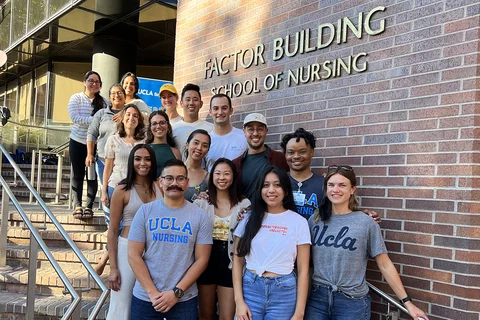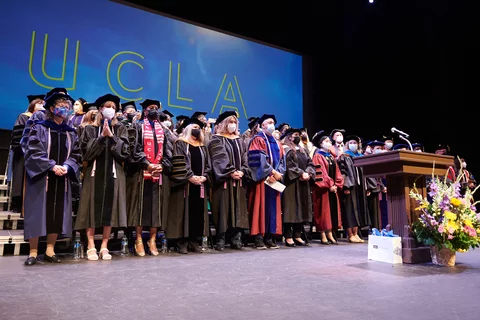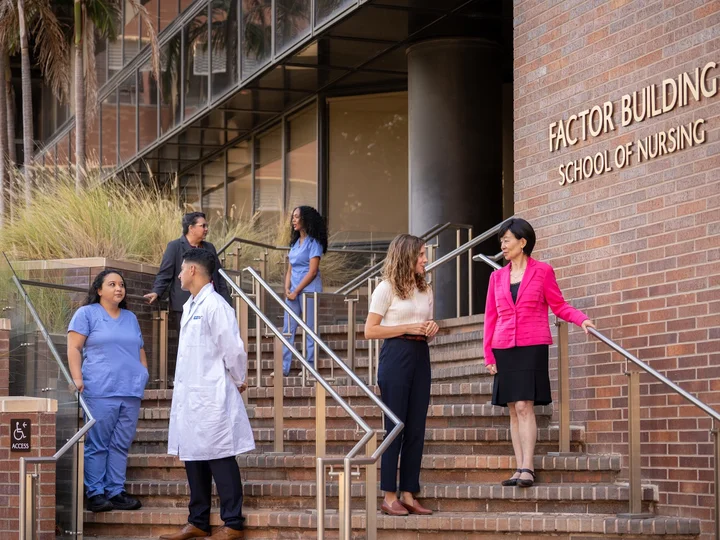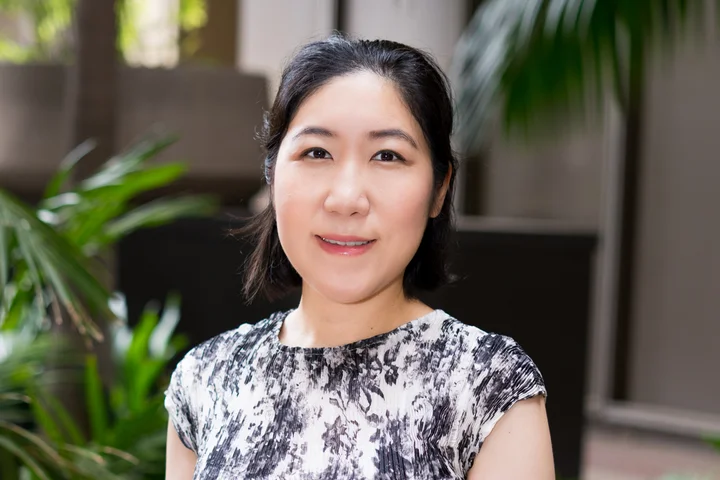Joe C. Wen School of Nursing

Register Today: UCLA Nursing Science & Innovation Conference
Registration & Abstract Submissions Now OpenExplore Our Programs

Student Success is Our Purpose
Why choose UCLA?Bachelor of Science
The four-year undergraduate program prepares students to enter the nursing field – after passing the Registered Nurse licensing exam – or pursue graduate studies.
Master of Science - Entry
The two-year Master of Science in Nursing program prepares those with undergraduate degrees in other subjects for a career as a Registered Nurse, Clinical Nurse Leader or Public Health Nurse.
Post-Master's Certificate - Psych. Mental Health
The predominantly remote, one-year certification program trains nurses to provide mental health care, alleviating the hardships caused by a statewide shortage of psychiatrists.
Doctor of Philosophy
The four-year, research-focused program prepares graduate level nurses to develop new knowledge through scientific research, to educate future nurses, and to improve healthcare delivery and policy.
Post BSN-DNP Program
This new three-year, Post Bachelor of Science in Nursing to Doctor of Nursing Practice (Post BSN-DNP) Program is designed to prepare registered nurses to become experts and leaders in advanced practice while completing a doctoral degree in nursing.
Be a Change Agent for UCLA Nursing

Research
Discover More
World-Class Faculty
Our PeopleUCLA Nursing News
Learn More About the UCLA Joe C. Wen School of Nursing
Receive a monthly newsletter featuring stories about our impact, upcoming events, and more.




